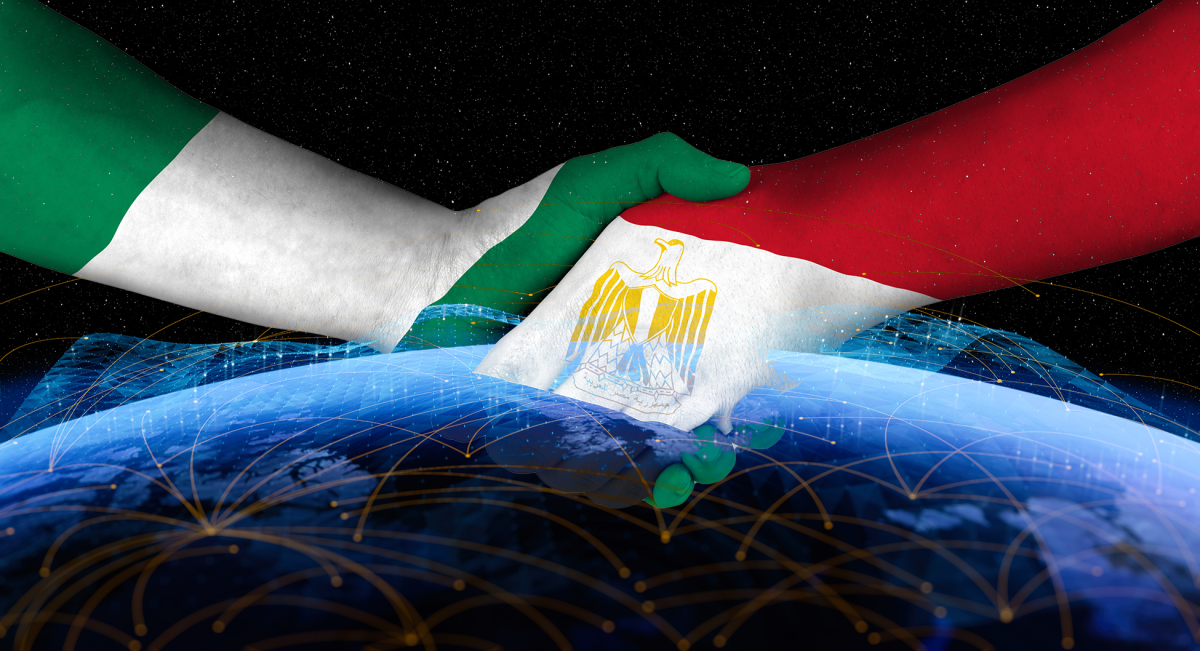
The Central Bank of Nigeria and the Central Bank of Egypt have signed a Memorandum of Understanding (MOU), with two of the largest economies in Africa agreeing to set up a “Nigeria-Egypt Fintech Bridge.”
While the full scope of the collaboration is yet to be detailed, the partnership between the two central banks is expected to encompass joint regulatory projects, coordinated licensing and legal frameworks, information and data exchange, fintech cross-referrals, and talent development.
According to Aishah Ahmed, deputy governor for financial system stability at the Nigerian Central Bank, the move is particularly geared towards improving financial inclusion. It is hoped that Nigerian-Egyptian collaboration on fintech solutions will allow more citizens from both countries to access formal financial services. At present Abuja and Cairo have some of the largest unbanked populations anywhere in the world.
The unbanked masses
Approximately 40% of the Nigerian population does not have a bank account, with that figure rising up to 75% of Egyptians. Both economies continue to rely heavily on cash, with over two thirds of Egyptians only using cash to conduct purchases or make transfers, according to the World Bank. Rume Ophi, a fintech and blockchain analyst based in Lagos, tells African Business that “collaboration between the various government agencies will help drive financial inclusion in Nigeria and Egypt.”
In a statement, Ahmed said: “We look forward to cultivating an innovative space for fintech startups and entrepreneurs in Egypt and Nigeria to accelerate financial inclusion, deepen our payment systems, and drive economic growth across the African continent.”
Fintech leaders call for inter-African cooperation
The move is a significant one as it comes at a time when more fintech leaders are calling for greater inter-African cooperation to drive the industry forward. At the Inclusive Fintech Forum in Kigali last month, Dare Okoudjou, CEO of pan-African payments company MFS Africa, told African Business that African countries need to integrate their fintech markets in order to unleash its full economic potential. He called for passporting solutions to minimise legal and regulatory barriers.
“We need to give entrepreneurs across the continent access to a bigger market. We keep talking about this potential market of 1.2bn people. But it is not a reality until we actually make it,” he said.
While this ambition remains a long way off, the Nigeria-Egypt Fintech Bridge would appear to be a step in the right direction. Ophi says that Nigeria in particular appears to be prepared to advance its fintech market, both through foreign collaboration and other measures. He notes that “in Nigeria, the government gave banking licences to telecoms companies to encourage mobile banking in a country where 36% of people are still completely excluded [from the formal financial sector]” but also emphasises that the MOU is not sufficient in itself: “more steps to advance the fintech market would be welcomed.”
Ophi is confident that the Nigeria-Egypt Fintech Bridge could unlock significant amounts of cross-border collaboration and help entrepreneurs in both countries devise more sophisticated fintech services and products – and therefore promote wider economic growth.
“The MOU will allow Nigeria and Egypt to attract innovations and foreign direct investment, which in turn will help grow the economies of both countries,” he says.
Source: Harry Clynch
https://african.business/2023/07/trade-investment/egypt-and-nigeria-unite-on-fintech

